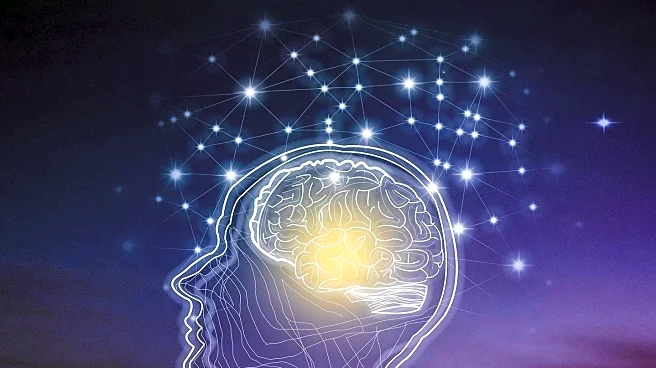What's Happening?
Researchers from the universities of Cambridge and Pittsburgh have conducted a study on phantom limb pain, which could revolutionize treatment approaches. The study followed three individuals undergoing hand amputation and found that the brain's map of the body remains unchanged even after limb loss. This discovery challenges previous assumptions that the brain rewires itself post-amputation. The findings suggest that treatments focusing on nerve grafting and robotic limb integration could be more effective. The study also opens possibilities for restoring movement and sensation to paralyzed limbs through brain interfaces.
Why It's Important?
This study provides critical insights into the brain's response to limb loss, potentially leading to more effective treatments for phantom limb pain. By understanding that the brain's map remains intact, researchers can develop therapies that better address the underlying neural mechanisms. This could improve the quality of life for amputees and individuals with paralysis, offering new hope for regaining mobility and sensation. The study also highlights the potential for advancements in neuroprosthetics, which could transform rehabilitation practices and enhance the integration of robotic limbs.
Beyond the Headlines
The study's implications extend beyond immediate treatment options, suggesting ethical considerations in the development of brain-machine interfaces. As technology advances, the integration of robotic limbs with the brain raises questions about identity and autonomy. Researchers and policymakers must navigate these challenges to ensure responsible innovation. Additionally, the study may influence future research in neuroscience, encouraging exploration of the brain's adaptability and its role in sensory perception.










